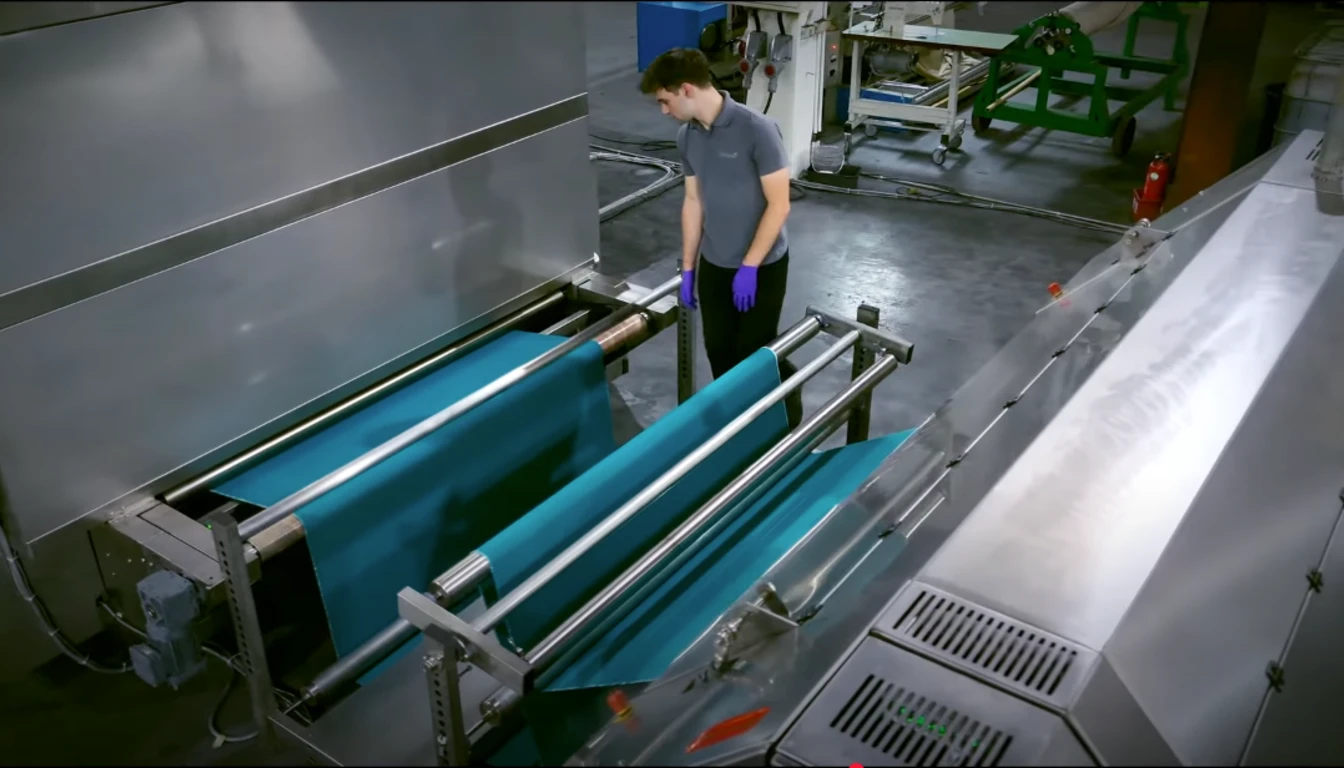Alchemie Technology, a pioneering UK-based start-up, has launched an innovative digital dyeing process aimed at resolving one of fashion’s most environmentally harmful practices. This advancement seeks to significantly reduce the water, energy consumption, and carbon emissions traditionally associated with fabric dyeing.
Traditional Challenges in Fabric Dyeing
Fabric dyeing has long been criticised for its substantial environmental impact. This process involves submerging textiles in large volumes of heated water, producing vast quantities of contaminated wastewater. To dye a single ton of polyester, the operation typically yields around 30 tons of polluted water, contributing to 20% of global industrial water pollution and about 10% of annual global emissions, based on United Nations statistics.
Introducing the Endeavour Machine
Alchemie Technology aims to disrupt these outdated methods with its cutting-edge Endeavour machine. Echoing the mechanics of inkjet printing, this machine applies dye with remarkable precision using 2,800 dispensers to deposit 1.2 billion droplets per metre of fabric. This technique dramatically reduces water use by 95% and energy consumption by 85%, offering a process three to five times quicker than conventional dyeing.
Dr. Alan Hudd, founder of Alchemie Technology, highlights the precision of this method as its main transformative strength. By adopting such technology, Alchemie provides a robust solution to both the waste and environmental damage traditionally linked with fabric dyeing.
Field Testing and Future Expansion
After its initial development in Cambridge, UK, the Endeavour machine is currently being tested in Taiwan, adapting to the region’s warm, humid climate. This stage is critical to understand its real-world application, especially in South Asia, which hosts a significant portion of global textile manufacturing. Alchemie plans to extend the machine’s use to markets in South Asia and Portugal by 2025, including trials on cotton fabrics.
Competitive Landscape and Industry Impact
While Alchemie leads with its digital precision technology, other innovators such as NTX from China and Swedish start-up Imogo are also venturing into water-efficient dyeing techniques. Despite emerging competition, Alchemie’s approach of minimising environmental impact proves distinct.
Design professor Kirsi Niinimäki from Finland’s Aalto University acknowledges the progress in the sector, noting that “using less water inevitably means less energy and fewer chemicals—representing a noteworthy improvement.”
Scaling Challenges and Industry Adoption
Despite this promising development, scaling the Endeavour machine to meet the needs of major fashion brands, such as Inditex, the parent company of Zara, presents considerable challenges. These conglomerates typically operate across thousands of factories, necessitating a large number of machines to keep pace with production demands. Nonetheless, Alchemie remains committed to making eco-friendly dyeing practices the norm industry-wide.
Future Prospects in Sustainable Fashion
As the fashion industry increasingly embraces sustainability, Alchemie’s Endeavour machine points towards greener production methods. Its ability to cut down resource consumption while enhancing efficiency signifies a potential global shift in fabric dyeing practices. This innovation not only mitigates the environmental footprint of dyeing but also aligns with consumer demand for more sustainable fashion choices.
Alchemie’s current progress emphasises the essential role of technology and innovation in addressing climate change challenges, particularly in the fast fashion sector.




